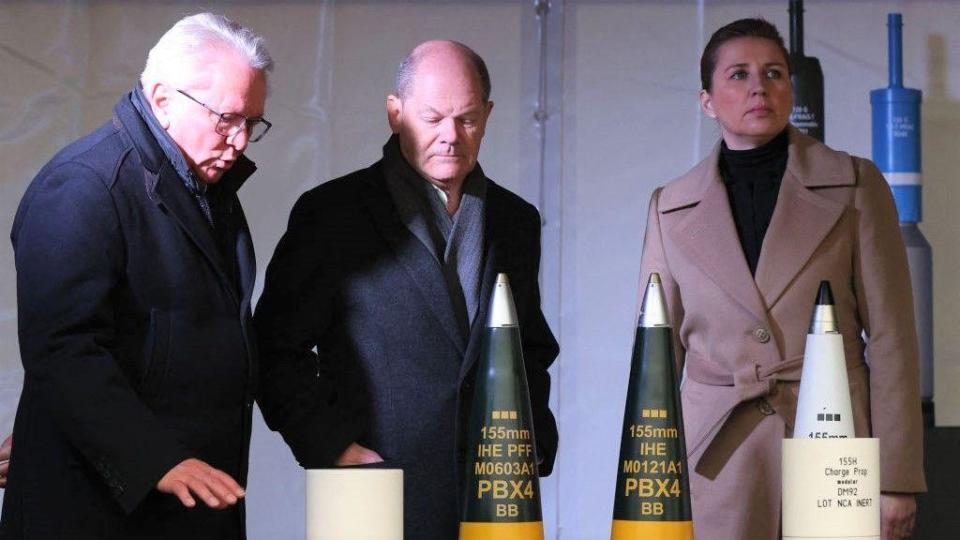Holes mysteriously found cut in army base fences.
An alleged plot to assassinate Germany’s top weapons manufacturer.
Phone taps on a high-level Luftwaffe call.
These aren’t storylines lifted from a 1960s spy novel but real-life events in Germany, this year.
Not all of these events can definitively be blamed on Moscow, but Germany is on heightened alert for possible acts of Russian sabotage, because of Berlin’s continued military support for Kyiv.
As a hot war rages between Russia and Ukraine, there are fears that Europe has slipped into a new Cold War.
“When we think of the Cold War, we have a tendency to think of the 1970s by which point the rules of the game had become established and accepted,” says Mark Galeotti, a senior fellow at the Royal United Services Institute (Rusi) and director of Mayak Intelligence.
“In some way, we’re in the early Cold War – the Fifties and Sixties, so a much rawer time.”
But what does a rekindled Cold War look like for Europe’s biggest economy and a country that was once itself cut in half by the Iron Curtain?
The biggest bombshell dropped just last month when CNN reported that US officials had told Berlin of an alleged Russian plot to kill the chief executive of Germany’s biggest arms company Rheinmetall.
The Kremlin denied the report but German Foreign Minister Annalena Baerbock, who strikes a hawkish figure next to the more hesitant Chancellor Olaf Scholz, hit out at Russia for “waging a hybrid war of aggression”.
I met Rheinmetall’s CEO, Armin Papperger, at a ground-breaking ceremony for a new ammunition factory in February.

The 61-year-old is, to use a crude term, a real “somebody”, particularly in a world where Nato countries are spending billions to re-supply Ukraine and boost their own security.
His prominent position was clear as he stood alongside Chancellor Scholz, Defence Minister Boris Pistorius and Danish Prime Minister Mette Frederiksen as they plunged spades into the earth in Lower Saxony.
Had a plot to kill him been successful, it would have sent shockwaves through the West.
A security blunder not long afterwards allowed spies to eavesdrop on a highly sensitive conversation between senior German air force officials, later broadcast on Russian TV.
It was a cause of acute embarrassment for Berlin given that a brigadier general in the Luftwaffe appeared to allow spies…
Click Here to Read the Full Original Article at Yahoo News – Latest News & Headlines…
